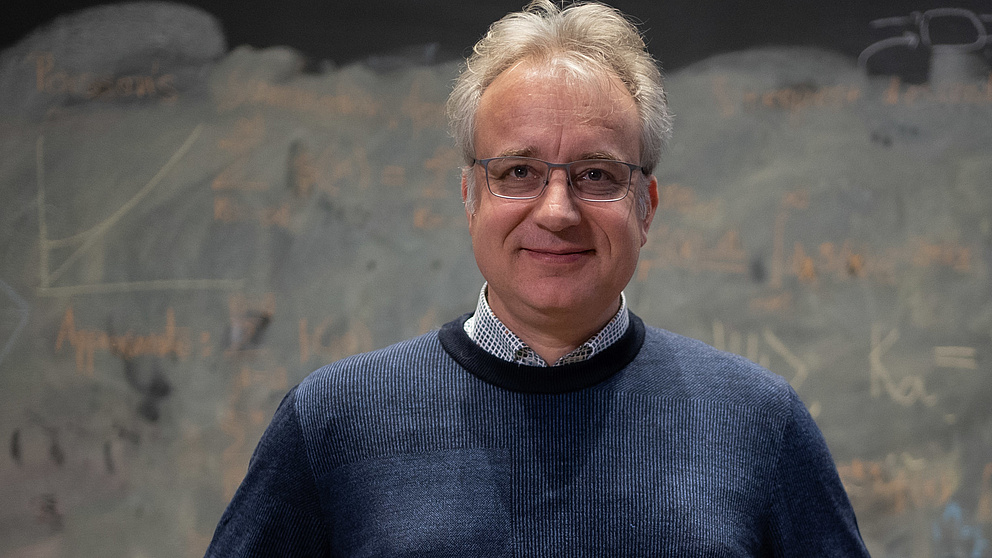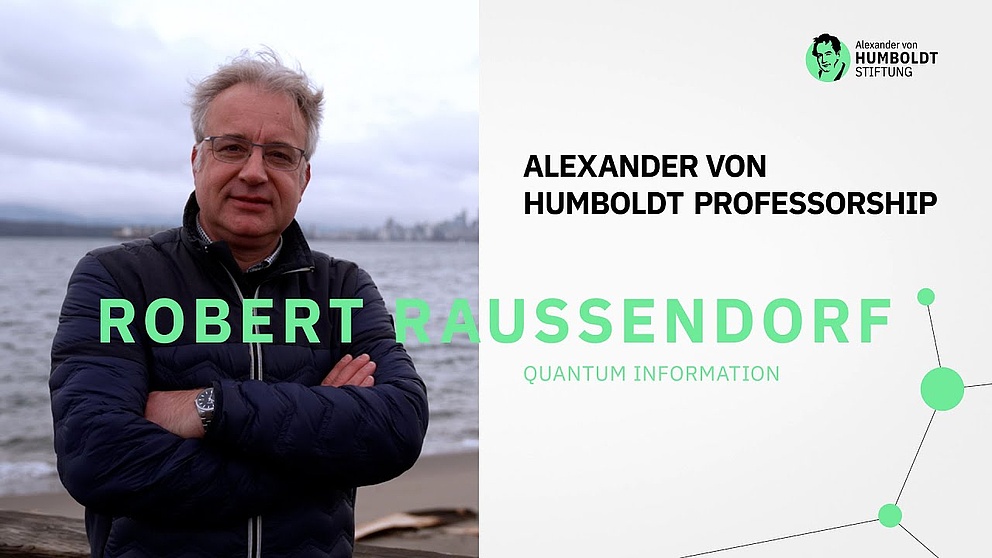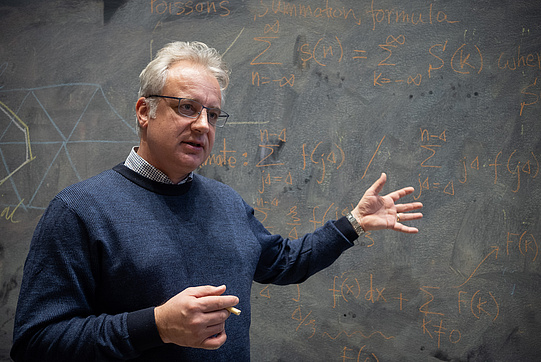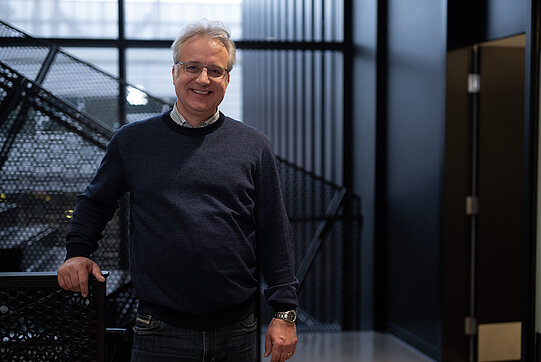Jump to the content
- {{#headlines}}
- {{title}} {{/headlines}}

Contact
Press, Communications and Marketing
Tel.: +49 228 833-144
Fax: +49 228 833-441
presse[at]avh.de
Quantum information
For over 20 years, scientists around the world have been trying to harness quantum physics to develop superfast computers. And that is precisely the period of time that Robert Raußendorf has been fascinated by the idea. Together with Hans J. Briegel of the University of Innsbruck, he is recognised as the inventor of the one-way or measurement-based quantum computer which formed the subject of his doctoral thesis. The model demonstrated a new approach to building a quantum computer and, at the start of the 2000s, constituted an outstanding achievement in quantum computer research. With this groundbreaking concept and his research on fault-tolerant quantum computers, which has been a particular focus in recent years, he has become a highly acclaimed and influential expert on the fundamentals of quantum information, and a coveted adviser to quantum computer firms.
Quantum error correction is important in tackling a practical problem involved in constructing a quantum computer, the phenomenon of decoherence: Quantum bits, the building blocks of quantum computing, are highly sensitive to external influences such as vibrations or electric fields; fault-tolerant quantum computing can correct these errors in the quantum information. A large quantum computer spends a major part of its computing time correcting errors and it is thus important to develop methods for correcting errors that make it possible to maintain a high error threshold with moderate effort.
At Leibniz University Hannover, Raußendorf is invited to assume a Humboldt Professorship in the Institute of Theoretical Physics where he will drive the continued development of quantum computers as well as training future generations of quantum physicists in Germany. His appointment would fill a structural gap in the quantum computing landscape. Hannover University already belongs to Quantum Valley Lower Saxony (QVLS), which promotes research into quantum technologies, and boasts two clusters of excellence, PhoenixD and QuantumFrontiers, that are active in the field. In the context of QVLS, the aim is to build a scalable, fault-tolerant quantum computer based on ion traps by 2025.
Brief bio
Professor Dr Robert Raußendorf was born in Germany and completed his doctorate at LMU Munich in 2003. He then became a postdoc at Caltech (California Institute of Technology), Pasadena, United States, and subsequently moved to the Perimeter Institute for Theoretical Physics in Waterloo, Canada. He continued his academic career at the University of British Columbia in Vancouver, Canada, where he was appointed assistant professor in 2008, associate professor in 2013 and full professor in 2021. In 2009, he was a Sloan Research Fellow – a programme that recognises outstanding junior researchers who have the potential to revolutionise their specialist areas. He was awarded the CAP-CRM Prize in Theoretical and Mathematical Physics by the Canadian Association of Physicists (CAP) and the Université de Montréal’s Centre de Recherches Mathématiques (CRM) in 2021.







